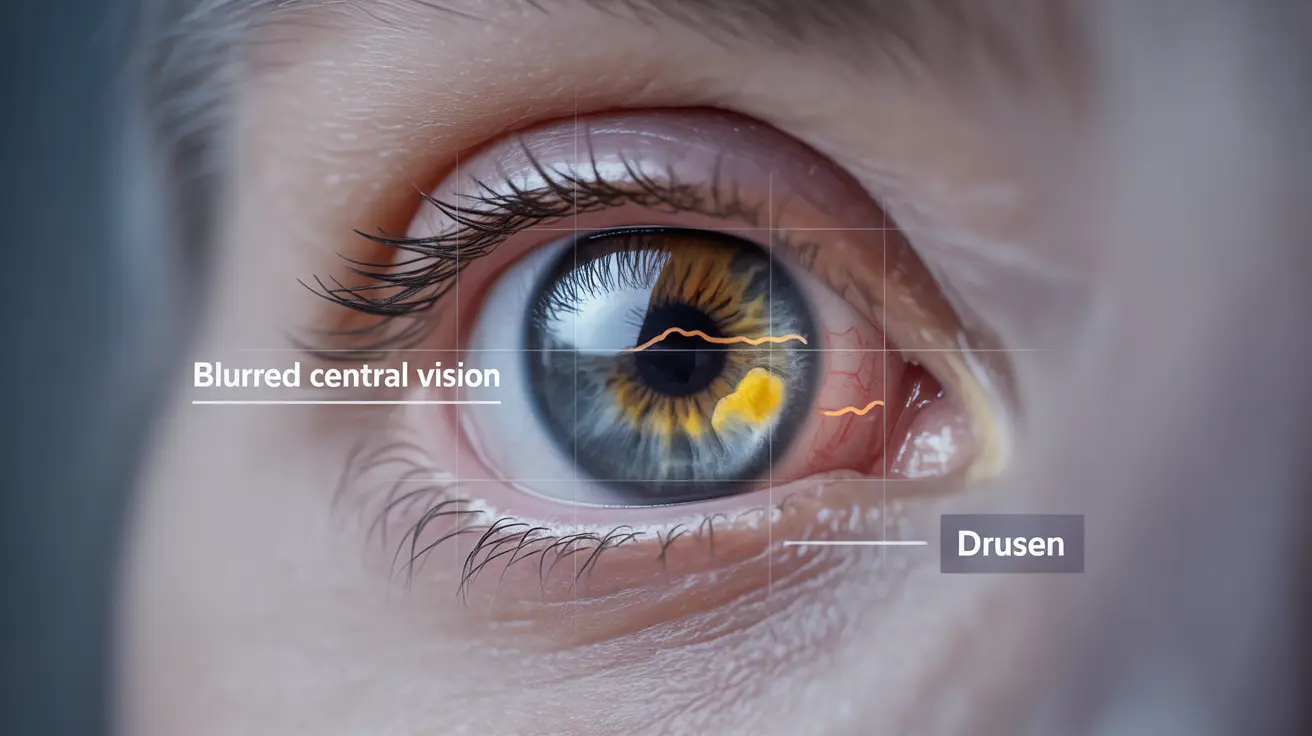Understanding the early signs of macular degeneration is crucial for preserving your vision and getting timely treatment. This progressive eye condition affects the macula, the central part of your retina responsible for sharp, detailed vision. Recognizing symptoms in the early stages can make a significant difference in managing the condition and maintaining your quality of life.
While macular degeneration typically develops gradually, being aware of subtle changes in your vision can help you seek medical attention when it matters most. Let's explore the key warning signs, diagnostic methods, and steps you can take to protect your vision.
Initial Warning Signs to Watch For
Early stage macular degeneration often presents with subtle symptoms that might be easy to overlook or dismiss. Common early indicators include:
- Slightly blurred or distorted central vision
- Difficulty reading without brighter lighting
- Decreased color intensity or brightness
- Problems recognizing faces
- Straight lines appearing wavy or bent
- Dark or blurry spots in central vision
These symptoms typically develop gradually and may initially affect just one eye, making them harder to notice as your good eye compensates for the changes.
Understanding Vision Changes
Central vision changes are particularly characteristic of early stage macular degeneration. You might notice:
- Colors appearing less vivid
- Text becoming harder to read
- Increased difficulty with detailed tasks like sewing or crafts
- The need for more light when reading or doing close work
- A small but growing blind spot in your central field of vision
Diagnostic Tools and Tests
Several tests can help detect early stage macular degeneration symptoms before they become severe:
The Amsler Grid Test
This simple but effective tool consists of a grid of straight lines with a central dot. Regular self-monitoring with an Amsler grid can help you notice subtle changes in your vision, such as:
- Missing lines
- Wavy or distorted lines
- Dark or blurry areas
- Lines appearing faded or broken
Professional Eye Examinations
Your eye doctor may perform several specialized tests to diagnose early macular degeneration:
- Dilated eye examination
- Optical coherence tomography (OCT)
- Fluorescein angiography
- Visual acuity tests
Prevention and Management Strategies
Taking proactive steps can help slow the progression of early stage macular degeneration:
Lifestyle Modifications
- Quit smoking or avoid starting
- Maintain a healthy weight
- Exercise regularly
- Protect your eyes from UV light
- Monitor and control blood pressure
Dietary Recommendations
A nutrient-rich diet can support eye health and potentially slow disease progression:
- Dark, leafy greens
- Fish rich in omega-3 fatty acids
- Colorful fruits and vegetables
- Nuts and seeds
- Antioxidant-rich foods
Frequently Asked Questions
What are the earliest signs and symptoms of macular degeneration to watch for?
The earliest signs include subtle changes in central vision, difficulty reading, needing more light for detailed tasks, and seeing straight lines as slightly wavy. You might also notice mild color changes or difficulty recognizing faces.
How can I tell if my central vision changes might be caused by early stage macular degeneration?
If you notice distorted vision, especially when looking at straight lines or grids, increased difficulty reading, or a small dark or blurry spot in your central vision, these could be signs of early macular degeneration. Regular use of an Amsler grid can help monitor these changes.
When should I see an eye doctor if I suspect early macular degeneration symptoms?
Schedule an appointment with your eye doctor immediately if you notice any changes in your central vision, difficulty reading, or problems with face recognition. Early detection and treatment can help preserve your vision.
Can vision tests like the Amsler grid help detect early macular degeneration?
Yes, the Amsler grid is an effective tool for detecting early signs of macular degeneration. It can help identify distortions, missing areas, or wavy lines in your vision that might not be noticeable in daily activities.
What treatments or lifestyle changes can slow the progression of early stage macular degeneration?
Key lifestyle changes include quitting smoking, maintaining a healthy diet rich in antioxidants and omega-3 fatty acids, exercising regularly, and protecting your eyes from UV light. Your doctor might also recommend specific vitamin supplements formulated for eye health.




